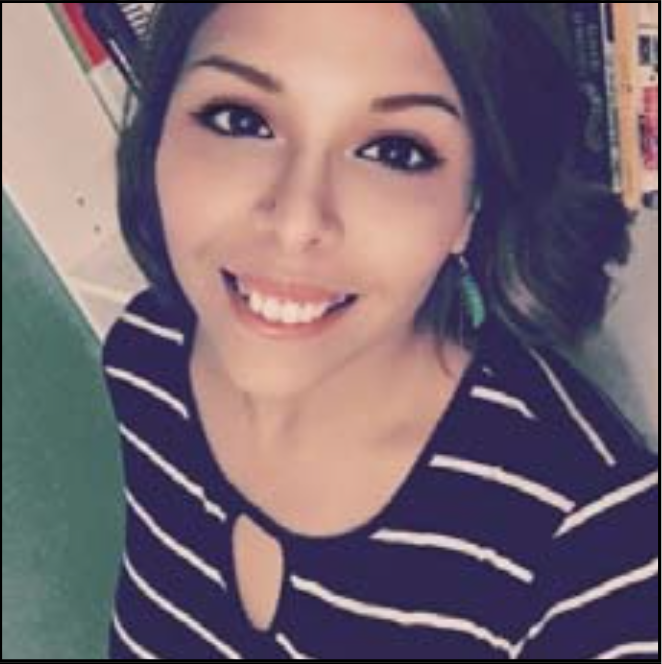Alum’s Research Examines Race and Gender in Science and Science Fiction
 Karina A. Vado graduated with the MA in Women’s Studies in 2014. She began her PhD studies as a Florida Education Fund McKnight Doctoral Follow in UF’s Department of English in 2015. Karina’s research lies at the intersections of science fiction studies, science and technology studies, and critical race and gender studies. She has since advanced to candidacy and is currently at work on her dissertation titled, “Mapping Bloodlines, Engineering Utopia: Genetic Futurities and Race Mixture in American Speculative Fiction.”
Karina A. Vado graduated with the MA in Women’s Studies in 2014. She began her PhD studies as a Florida Education Fund McKnight Doctoral Follow in UF’s Department of English in 2015. Karina’s research lies at the intersections of science fiction studies, science and technology studies, and critical race and gender studies. She has since advanced to candidacy and is currently at work on her dissertation titled, “Mapping Bloodlines, Engineering Utopia: Genetic Futurities and Race Mixture in American Speculative Fiction.”
As I was the only child of Nicaraguan immigrants, my parents were less than enthused about my wanting to pursue an MA in Women’s Studies. They couldn’t understand why I’d want to dedicate my life to researching “esoteric” issues given what they saw as the inevitable economic instability that comes with earning a non-STEM degree. Despite my parent’s initial reluctance, I decided to pursue the MA to gain a better understanding of how the intersections of race, class, gender, ethnicity, nationality, and sexuality inform(ed) the literary and cultural contributions made by people—especially women—of color in the Americas. Though I graduated from the program close to four years ago, the Women’s Studies question ofhow to merge feminist theory with feminist practice to critically address our most pressing social issues has stayed with me and has influenced how I approach my research questions, as well as the myriad intentional pedagogical strategies I employ inside and outside the traditional classroom.
Thanks to the interdisplinary education I received in the Center for Gender, Sexualities, and Women’s Studies Research (CGSWSR), my research on the politics and representation of mixed-race corporeality in (proto)genetic American science fiction is informed by my on-going training in the history of science (particularly of the life sciences), biological anthropology, and medical sociology. Approaching the study of science fiction literature in this manner allows me to differently engage in the important task of historically unpacking and problematizing the “science” in science fiction (SF), particularly in that of 20th century and contemporary multi-ethnic and feminist SF.
Likewise, the pedagogical training I received in the CGSWSR from the brilliant Dr. Carolyn Kelley prepared me to bring this very same interdisciplinary (and social justice inflected) focus to my classroom. I urge my students to examine and question texts’ ideological assumptions through this ever-necessary vantage point. For instance, in my upper-level English course entitled, “Extrapolating Race and Science in African American and Latinx/Chicanx SF,” my students are asked to read excerpts of scientific narratives such as Charles Darwin’s The Descent of Man. We then trace how colonial grammars of race, gender, and sexuality not only animate the scientific discourses of the period but also inform and shape the generic conventions of early white masculinist SF. Through this always interdisciplinary, always intersectional, and always historically, socially, and politically situated reading of literature, I encourage students, as I saw Dr. Kelley do during my time as her TA, to be stronger and more socio-politically aware critical thinkers, writers, and civically engaged agents.
Aside from the invaluable research and pedagogical preparation I received in the CGSWSR, my MA experience encouraged my aspirations to be actively involved in social justice efforts outside of the university classroom. I currently serve as the Senior Coordinator of PODEMOS, a two-semester initiative offered by Hispanic- Latino Affairs that consists of an academic success program in the fall semester (Latino Educational Advancement Program, LEAP), and a professionalization program in the spring semester (Personal Opportunities and Diverse Experience Resource, PODER). Designed to assist first-year Latinx students acclimate to higher education, the program offers many of the bi-weekly academic, research, and professionalization workshops that I wish I had as a first-generation Latina college student. The program is entering its fourth semester and has tripled in numbers during this period, bringing us one step closer to increasing the amount of Hispanic-Latinx people in the United States who have earned a bachelor’s degree.
Ultimately, I credit the combination of research, pedagogical, and professionalization opportunities that the CGSWSR offered me in starting and influencing (to this day) what I hope will be a long and fruitful career as an activist- scholar.